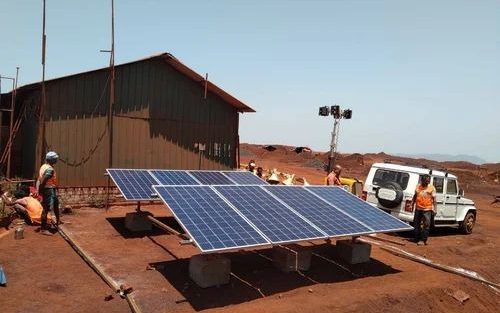I remember the day a local farmer asked me why his crops weren’t growing the way they used to. “It’s like the sun is angry,” he said.
That moment stuck with me—not just because of the truth in his words, but because it reminded me that climate change isn’t a distant threat. It’s here, and it’s deeply personal.
But what if I told you that same sun could be Africa’s greatest asset? What if the solution to our crisis isn’t just survival—but transformation?
That’s the promise of a low-carbon economy—and Africa’s chance to lead it.
What Is a Low-Carbon Economy?
At its core, a low-carbon economy is one that runs on clean, sustainable energy. It’s a shift away from fossil fuels like diesel and petrol, toward renewables like solar, wind, and hydro. But it’s also more than energy.
It’s about rethinking how we build, travel, farm, and consume, all while keeping our carbon footprint low.
Globally, this shift is already happening—electric vehicles are replacing gas cars, buildings are going green, and countries are racing to meet their net-zero targets.
But here’s what’s exciting: Africa doesn’t have to play catch-up. We can leapfrog into this new economy—if we start seeing our challenges as opportunities to innovate.
Why This Matters for Africa
Africa is often painted as a victim of climate change—and while that’s partly true, it’s only half the story.
The other half? We’re sitting on some of the most valuable resources for a low-carbon future.
We have sunlight: over 300 days a year in countries like Nigeria.
We have people: the youngest population in the world.
We have space to build smart from scratch—without the baggage of outdated systems.
Just like we skipped landlines and went straight to mobile phones, we can build with clean energy at the center.
This is more than an environmental conversation—it’s about economic independence, job creation, and future-proofing Africa’s growth.
But for that to happen, we need bold action, practical solutions, and leaders willing to take risks.
Challenges on the Path
Let’s be honest: the road to a low-carbon economy won’t be smooth.
We face:
Unreliable power infrastructure
Limited financing options
Policy gaps
And a general lack of awareness
Many still see solar as a luxury—not a necessity. And for families living day-to-day, sustainability feels like a long-term luxury, not a now problem.
But that’s exactly where the opportunity lies.
Every one of these challenges is a call for innovation.
We don’t need perfect conditions. We need people willing to start anyway—and build as they go.
The Role of Solar & Innovative Financing
This is where ideas meet action—and where I’ve chosen to focus my energy.
At PowerNow PayLater, we asked a simple question: What if people could access solar energy without the heavy upfront cost?
The answer was a financing model that allows homes and businesses to install solar systems and pay in manageable installments.
Because here’s the truth: Most Nigerians—and millions across Africa—want reliable, clean energy. But the real barrier isn’t interest. It’s access and affordability.
By rethinking how we fund solar adoption, we’re not just selling systems—we’re unlocking a movement. A movement where students can study at night, businesses can run without noisy generators, and families can save money month after month.
This is what the low-carbon economy looks like in action: Real people. Real impact. Real change.
And we’re just getting started.
Africa doesn’t need to copy the rest of the world. We have the resources. We have the people. We have the sun.
Conclusion: A Call to Bold Action
What we need now is the will—to think big, build fast, and lead the low-carbon transition on our terms.
The low-carbon economy isn’t just about cutting emissions. It’s about creating a future where energy is clean, accessible, and abundant—for everyone.
I believe this is Africa’s moment.
So here’s my question to you: What bold step can you take today to support a low-carbon future?





